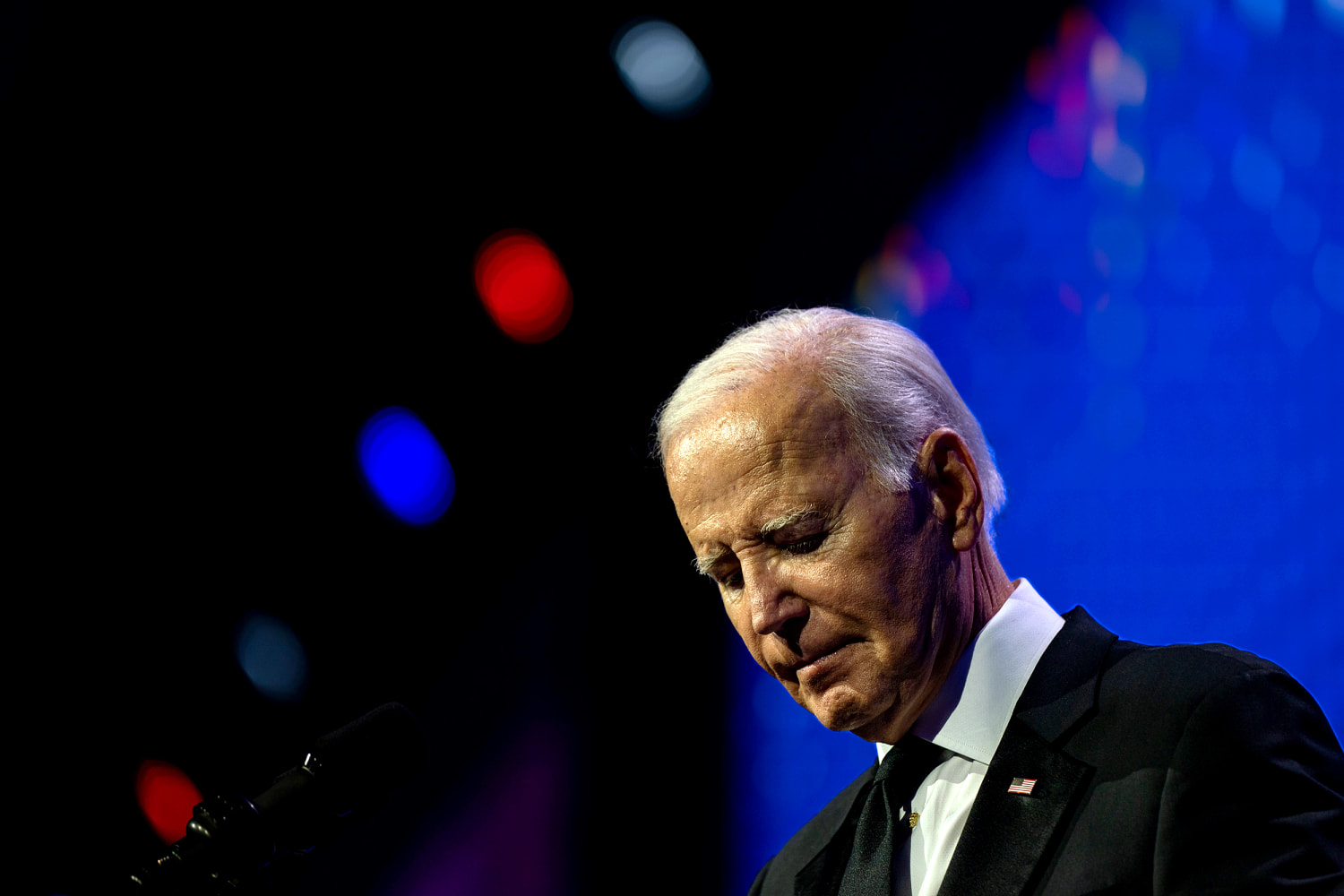
After President Joe Biden’s catastrophic debate performance Thursday, a number of top Democratic donors are expressing anxiety to the White House, and many commentators — including the editorial board of The New York Times — have called for him to end his candidacy for the White House and allow another Democrat to replace him.
But those closest to the president disagree. Biden’s family has reportedly encouraged him to stay in the race. His aides have rallied behind him and are pushing back aggressively against questions about his physical and cognitive fitness for 2024. This pushback campaign at times has gone beyond firmly executed damage control and evolved into arrogant dismissals of a vital conversation. “The bedwetting brigade is calling for Joe Biden to ‘drop out,’” Robert Flaherty, Biden’s deputy campaign manager, wrote in a campaign email Sunday.
Biden’s family members — who are urging him to stay in the race — are poorly positioned to counsel the president on this matter.
Biden’s inner circle seems more resolute than ever that he still has the juice. But their track record suggests that, at this crucial juncture, they are among the very last people who should be trusted to assess whether Biden should remain in the race.
Biden’s debate performance made it plainly obvious that the president has trouble communicating clearly and coherently; as he struggled to spar with Trump, he frequently spoke almost inaudibly, struggled to remember numbers and policy details and even failed to complete sentences at all. Biden’s behavior tracks with The Wall Street Journal’s reporting in June, based on several sources familiar with Biden meetings, that the president has shown notable lapses in memory and struggled to communicate his ideas. After the debate, Axios, citing current and former Biden aides, reported that Biden appears to have limited hours in the day during which he’s fully engaged. (NBC News has not independently confirmed these reports.)
Whatever the reality behind the scenes, Biden’s recent public appearances have shown a man greatly diminished by age in his ability to communicate — an utterly essential skill for any president. Ultimately his debate performance alone — a stunning decline from just four years ago — has been enough to rattle many people who have been supportive of the Biden presidency and would otherwise love to see him run for another term.
It almost goes without saying that Biden’s family members — who are urging him to stay in the race — are poorly positioned to counsel the president on this matter. They of course have a deep personal attachment to Biden and, having seen him age for many years, may be too close to appreciate the full scope and scale of his decline. Like any family, they’re going to find it painful to admit that he has exhausted his ability to fulfill his vocation. They typically see him when he’s more relaxed; they aren’t sitting in on high-stakes negotiations with him. And of course they also have a personal interest in his remaining in the White House, because the presidency confers many unique advantages and opportunities upon a president’s family.
Biden’s inner circle of staffers may also be unusually prone to similar biases. To begin with, like any group of political aides, they have a natural incentive to try to keep the boss’ prospects afloat — and preserve their own power to steer the ship of state. But as The Atlantic’s Franklin Foer, author of a book on Biden’s first two years in office, points out, this dynamic is exacerbated by the fact that Biden’s top aides have all been with him for so long:
The group around President Joe Biden is familial to the core. The newbies in his inner circle have worked for him for 20 years; the veterans have been around since the early ’80s. To his closest advisers, Joe Biden is a figure frozen in time, still the domineering patriarch who dispenses love and throws tantrums. They crave his affection, they navigate his anger, they calibrate their arguments to appeal to his predilections. In the structure that Biden has erected around himself in the White House, he is his own top adviser. … To admit his end is to provoke a crisis in their own professional life. If I’m not whispering in Biden’s ear, then what am I?
Is it possible that some of them harbor private doubts or ambivalence about Biden’s competence? Of course. But in general the “familial” ties that define Biden’s team make it less likely they will confront Biden with hard conversations.
The people who are most likely to be able to move the needle are not in the White House but outside it. If Biden were to step down, it most likely would require former Democratic presidents, Democratic leaders in Congress and other top Democratic elites to come out in concert against Biden. These are players who are better positioned to put the interest of the party first and are less likely to be compromised by self-interest or emotional ties. So far, we’re very far from anything like that happening. Regardless of where you stand on the question of whether Biden should step down on a strategic level, it should be clear that he should be getting advice from those best qualified to offer it — and those closest to him do not fall in that category.

Leave a Reply